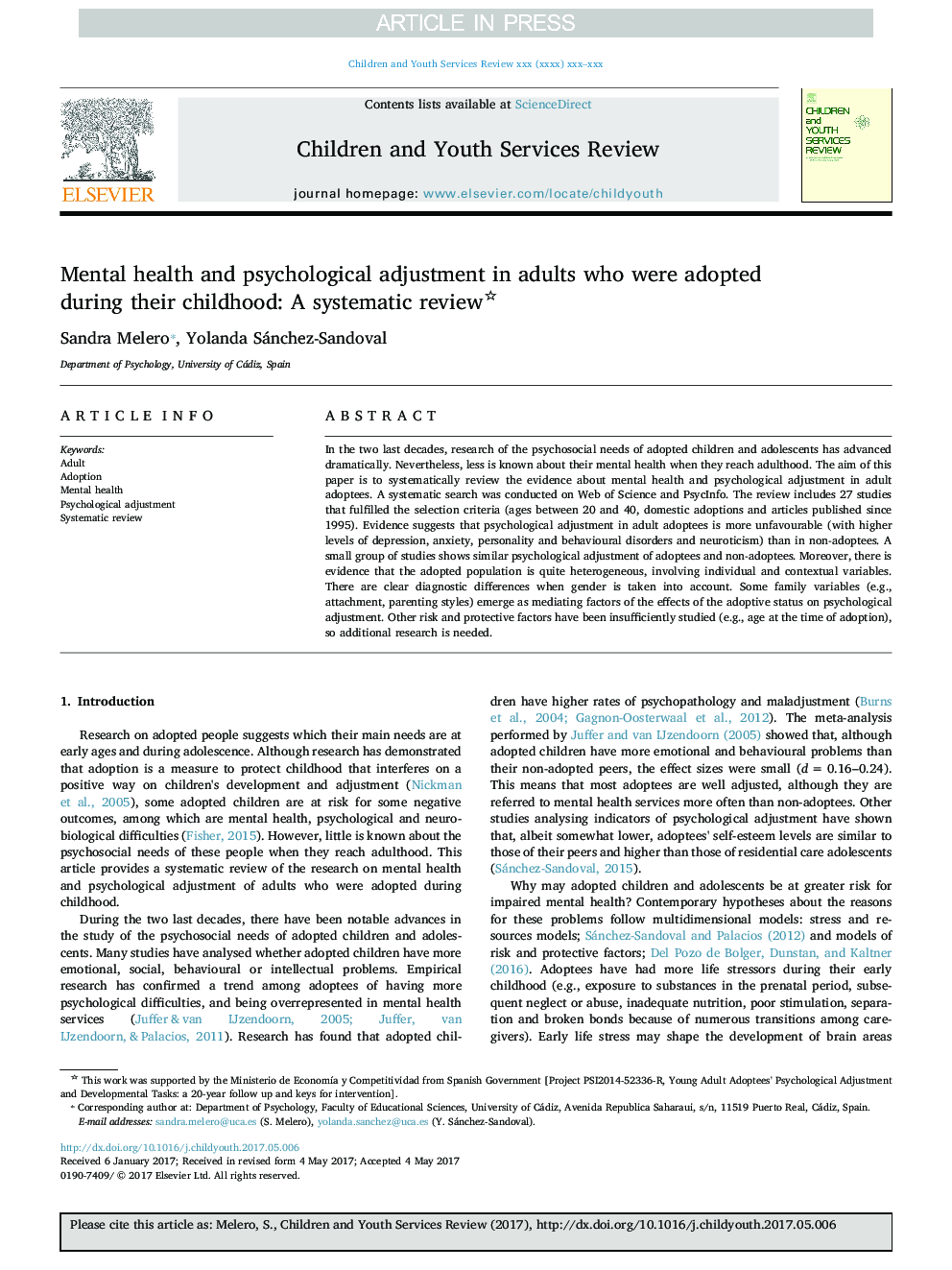| Article ID | Journal | Published Year | Pages | File Type |
|---|---|---|---|---|
| 4936465 | Children and Youth Services Review | 2017 | 9 Pages |
Abstract
In the two last decades, research of the psychosocial needs of adopted children and adolescents has advanced dramatically. Nevertheless, less is known about their mental health when they reach adulthood. The aim of this paper is to systematically review the evidence about mental health and psychological adjustment in adult adoptees. A systematic search was conducted on Web of Science and PsycInfo. The review includes 27 studies that fulfilled the selection criteria (ages between 20 and 40, domestic adoptions and articles published since 1995). Evidence suggests that psychological adjustment in adult adoptees is more unfavourable (with higher levels of depression, anxiety, personality and behavioural disorders and neuroticism) than in non-adoptees. A small group of studies shows similar psychological adjustment of adoptees and non-adoptees. Moreover, there is evidence that the adopted population is quite heterogeneous, involving individual and contextual variables. There are clear diagnostic differences when gender is taken into account. Some family variables (e.g., attachment, parenting styles) emerge as mediating factors of the effects of the adoptive status on psychological adjustment. Other risk and protective factors have been insufficiently studied (e.g., age at the time of adoption), so additional research is needed.
Related Topics
Health Sciences
Medicine and Dentistry
Perinatology, Pediatrics and Child Health
Authors
Sandra Melero, Yolanda Sánchez-Sandoval,
